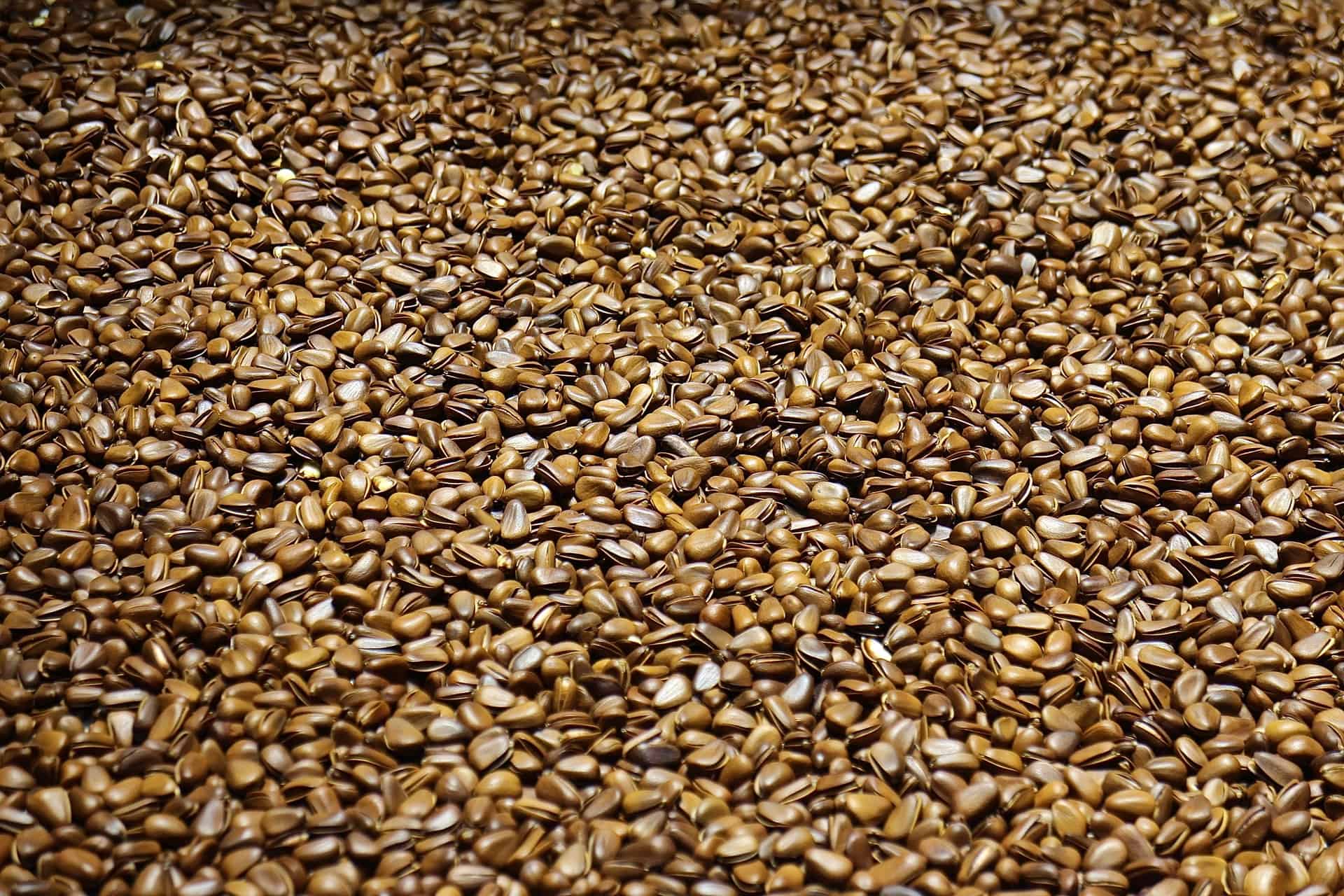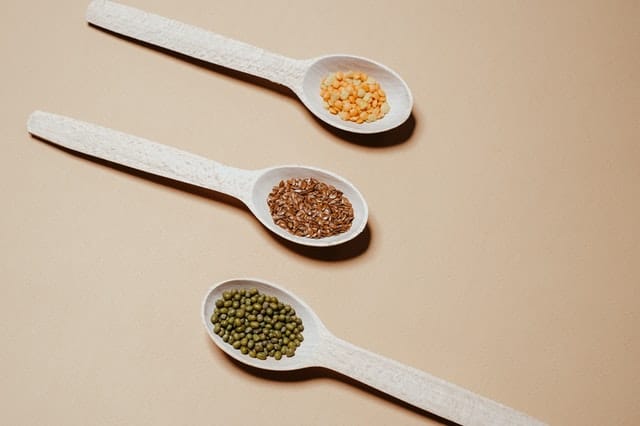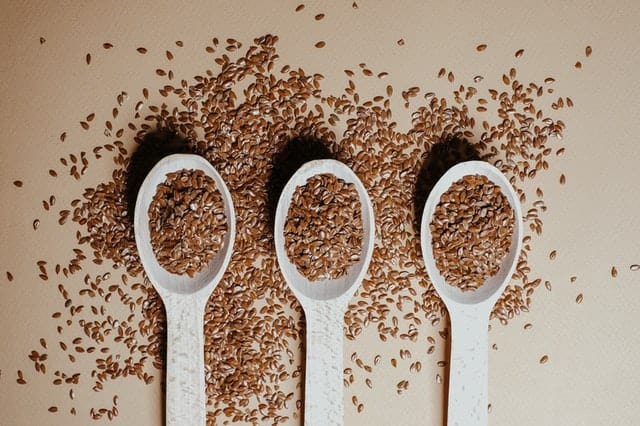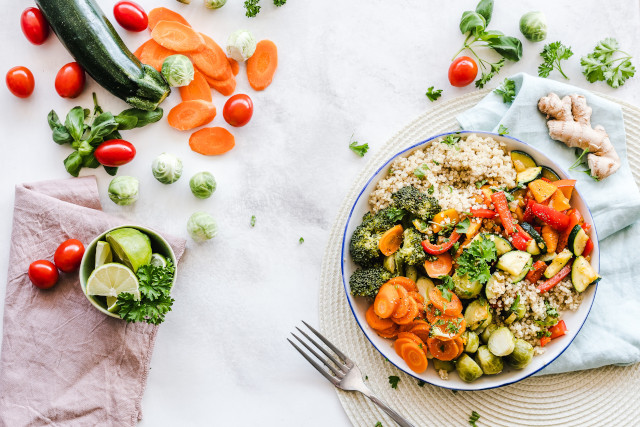
There are plenty to look out for when planning a diet for diabetes. Although there are standard recommendations that fall into a generally healthy diet, such as more fibre, less sugar, less carbs, moderate red meat, low saturated fat, etc., there are also foods that are shown to be more beneficial than others when it comes to preventing diseases like diabetes.
Among the most popular healthy choices in the kitchen, together with olive oil, is flaxseed. In the culinary world, this seed is actually not such a novelty, as we see them used often in breads and in the form of pressed oil.
Contents
One of its famed characteristics is high fibre and high protein. In 100 grams there are 108% worth of daily value for dietary fibre and 18 grams of protein, with a low saturated fat content. Further, it is also a prime carrier of Omega-3 fatty acids as well as Omega-6 fatty acids, forming a low ratio between the two, which studies have shown to help prevent chronic illnesses.
Omega-3 is not only recommended by the doctors at a certain intake level, it has also been shown by studies to have beneficial effects on diabetes. For these reasons, flaxseed may not only be seen as a healthy food choice, but a potential superfood candidate for diabetes diet.
In this article, we are taking a closer look at the benefits and risks of eating flaxseed products.
First and foremost, there are quite a few beneficial effects on diabetes that can come from eating flaxseeds.
Flaxseeds are high in dietary fibre
When dietary fibre gets digested, it forms a mass with the water inside our bodies when it dissolves into it. This process then goes on to help us digest other foods that don’t have much fibre. This is the kind of fibre—dietary—that is high in flaxseeds.
Note that we are talking about flaxseeds themselves here, not their oil, which we will cover in a minute.
As studies have found, such as one that was published in 2013, dietary fibre not only does the traditional job of improving our digestion, it also has the effect of stabilizing blood sugar levels by slowing down the absorption of sugar into your bloodstream. Tying more closely to our topic at hand, the researchers in this study found that dietary fibre has preventive effects on type 2 diabetes and the culprit that often goes hand-in-hand therewith—cardiovascular diseases.
Another study published more recently, in 2019, have reaffirmed the above finding.
Since diabetic people have low insulin activities, it is extremely important that the control on blood sugar levels is on point. Therefore, that flaxseed’s high content of dietary fibre may help exactly with this said control makes it a great candidate ingredient in your meal.
Not sure what exactly to do with these little red-brown seeds? Think about what you usually do with sesame seeds or chia seeds. You can add these little things in your salad bowl, your yogurt, or mix it in with your oats if that is permitted to be part of your diet.
Flaxseed helps managing blood sugar levels in diabetes

We have just talked about the importance of controlling blood sugar levels in diabetes, and how flaxseed may be a great candidate for just that. Now let’s look at some studies conducted directly on diabetes and flaxseed.
In a study published in 2011, 29 people with type 2 diabetes were asked to incorporate 10 grams of ground-up flaxseed powder into their diets. After a month, the researchers found that consuming these people’s blood sugar at baseline (meaning before they eat anything on a given day) reduced by 19.7% on average.
In another study, published in 2009 found similar results with a comparable group of diabetic adults. Across a 3-month period—rather than 1 month—the participants took 5 grams of flaxseed daily and were found to have their blood sugar levels decreased by as much as 12% on average.
Combining the results of these two studies, we can see some important implications about the reductive effects of flaxseed on blood sugar levels in diabetics.
The first one is that it is a sustainable effect, rather than an acute one. That is, continually eating flaxseed will not likely make your body get used to the effect—build up tolerance towards it—over time. This means that the effect you experienced the first time you ate flaxseed will remain the same at the nth time you eat them.
The second one is that flaxseed seems to be a highly effective agent of change on the levels of blood sugar. This observation comes from the fact that for 5 grams of flaxseed, the blood sugar reduction was 12%, while twice that amount induced only a 7% more reduction in blood sugar levels, which was half that of the initial change.
Translated into your dietary plans, it means that there is likely a cap to how much flaxseed can effect the changes in your blood sugar levels—after a certain amount of intake, there will be no bigger changes—so don’t go bananas on flaxseeds, keep it moderate.
Since one of the health trends these days involve a wide variety of plant-based oils, such as avocado and coconut, and flaxseed oil has become one of the staples on the shelves of most big supermarkets in the US, about these above benefits for diabetes, you may be asking…
Is it the oil?
The short answer is No.
We’re all probably familiar with the fact that one glass of orange juice can take up to 6 oranges to make—try this at home yourself if you find it hard to believe—and the fact that juices lack some important nutrients present in whole fruits, such as fibre.
So it is really no surprise that the oil pressed from whole foods does not contain the same nutritional profile, either. In the case of flaxseed, when its oil gets extracted, it looks like the benefits for diabetes from eating flaxseeds are left behind.
In a study published in 2008, the researchers found that flaxseed oil did not have any effects on either insulin levels or the blood sugar levels in people with type 2 diabetes.
However, in a study done with obese people, flaxseed oil was indeed shown to have improved the participants’ sensitivity to insulin.
It is possible that the effective agents that exist in flaxseed oil acts to have a preventive influence on people at risk for developing diabetes, but not as beneficial to those already struggling with the disease. More research is needed to clear the clouds around this one.
Flaxseed is antioxidant-rich
Because a major part of diabetic damage on the body and organs involve inflammation, antioxidants have consensually been found to have a beneficial effect on the overall health of those with diabetes.
In the same study that showed an improving effect of flaxseed oil on insulin sensitivity, the researchers also found that flaxseed had the same effect, and it was acting through the seed’s antioxidant properties.
That said, in the larger scientific community, these effects have only been solidified in animal studies and the research on human studies has not shown a conclusive result. Therefore, although it looks promising, at the current stage, nothing definite could be said yet.
Potential downsides

As expected with such a nutrient-dense ingredient, there are some potential downsides to these powerful little seeds.
Because with each seed comes a pack full of nutrients and other substances, sometimes these contents may interact with the medication your doctor prescribes to you, including any blood-thinning drugs or even drugs intended to lower your blood sugar level.
For instance, because flaxseed and its oil both have such dense punch of Omega-3, it may interact with the blood-sugar-lowering drugs and make your blood sugar too low, thus requiring adjustment in your treatment regimen or diet.
The same may be applied to cholesterol-moderating drugs, making the adjustment or specification of your medicines more challenging.
Conclusion
With all being said, flaxseed products—especially the seeds themselves—seem to be a general health-promoting food that might be especially beneficial for managing diabetes or preventing the disease.
Although many of these benefits have not received expert consensus among humans yet, the studies conducted on animals have shown great promise. This does not mean you cannot try incorporating these seeds into a balanced, healthy diet plan, however.
As a seed, it may seem difficult to use it in the kitchen, but if you think of it as more like a condiment or even garnish like sesame seeds and chia seeds, you may find flaxseeds a quite charming addition to your small snacks.
As a final caveat, because everyone’s body is not made equal, when making any changes to your diet, such as adding a handful of flaxseeds to your meal, make sure you run your new plan through your doctor before committing.





